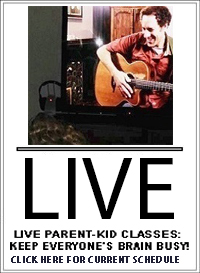Klezmer music is functionally the instrumental music of Eastern and Central Europe’s Ashkenazic Jews, but in essence, since the Nazis obliterated Eastern and Central Europe’s Jewish population in the Holocaust, it has become much more. Today, musicians who play klezmer are not only embracing one of the world’s most inspiring bittersweet musical styles, but with each performance they’re also rebuilding lost Jewish culture, striking a note by note blow against the Nazis who tried to wipe it from the face of the earth.
Klezmer can trace its origins back to the 9th century in the Rhine valley, where the Yiddish language also developed. As Jews moved to Eastern Europe their celebratory music wedding/festival music found influence in that of the local cultures, specifically in present day Romania (including a definite cross-pollination with Roma music) and Moldova (once Bessarabia, where klezmer musicians started using Turkish scales already familiar from synagogue observances), Belarus, Lithuania, Russia, Ukraine and Poland, where 19th century, Polish-Russian klezmorim (esteemed klezmer musicians) who had been in Czarist military bands brought brass and woodwind instruments into what had primarily been string-based ensembles. Judaism’s ultra-orthodox Chasidic movement of the 18th and 19th centuries emphasized passionate singing and dancing while in the act of worship and bound klezmer music inextricably to Jewish festivals and joyous observances.Â
Though an estimated 90% of klezmorim died in the Holocaust, those who survived passed on their knowledge to the next generation. From World War II Jews focused less on klezmer and its Yiddish language than on building a Hebrew speaking state of Israel, but since the ’70s American and Western European Jews rediscovered their Eastern European roots and set out to revive both.
Today there are klezmer bands everywhere–check out Klezmershack.com’s inspirational listing of klezmer bands worldwide by location–and they bring their raucous, life-affirming music to Jews and gentiles alike. The most accomplished Klezmer emsembles, such as the U.S.-based Klezmatics, are fluent in traditional klezmer but also actively expand the music to include other global styles.For example, Frank London, a former trumpeter for the Klezmatics, who now heads the Klezmer Brass All Stars, actively connects klezmer with Balkan brass (Frank London meets Serbia’s Boban Markovic as “The Brotherhood of Brass”), and The New Orleans Klezmer AllStars fuse klezmer with New Orleans funk and jazz. Most heartening to Jewish klezmer musicians may be the fact that klezmer has become a “hip” form of music in countries that were inimical (and much worse) to Jews just a couple generations ago. For example, Poland’s Krakow Jewish Music Festival celebrates the country’s vanished Jewish culture. To some that’s a way to rebuild badly burnt bridges. To others, it’s just plain odd.
No matter who accepts klezmer, or even who accepts who accepts klezmer, the music is thriving. Like Romani music it’s everywhere, influencing and being influenced by almost every musical style. Considering the increasing interconnectedness of the world, it does make sense. Both Romani music and Klezmer have long been truly global forms of music. The rest of the world is finally starting to know what global means.
More information:
Wikipedia on Klezmer: includes and exploration of the klezmer song types and its melodic modes | Visit Klezmershack.com for all things Klezmer
Konsonans Retro is a family brass band from the Ukraine that performs klezmer music in the secular tradition of the once-thriving Odessa Jewish community. On “A Podolian Affair,” the Baranovsky family revives the wedding songs of the village of Podolia, which is
the birthplace of Hasidism, infusing them with Balkan and other Eastern European arrangements, granting them a new life.
More information:
From Save the Music: Konsonans Retro are”the cultiest and freshest new world music act to come out of Eastern Europe.” | A rave review of “A Podolian Affair” | Konsonans playing at a klezmer dance party in Odessa | Konsonans Retro performing at the port of Odessa





Comments are closed.